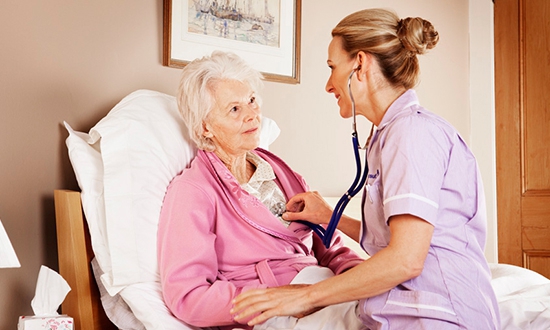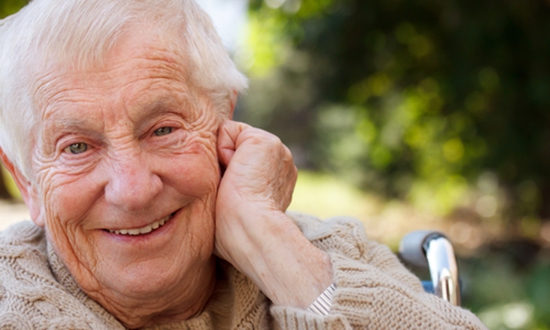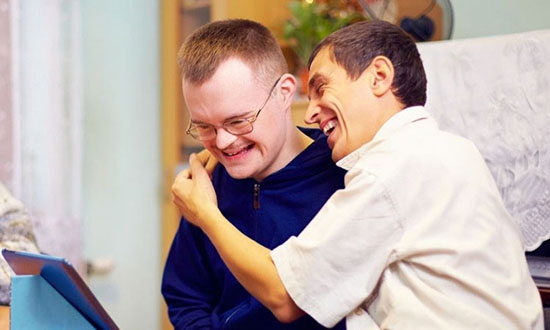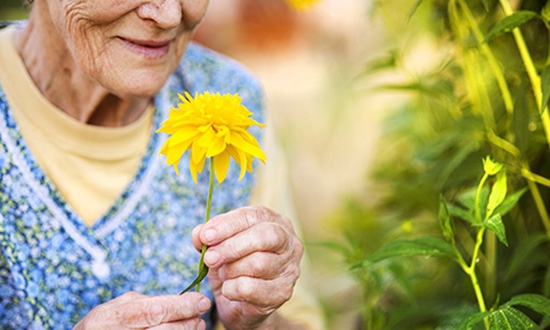According to the Office of National Statistics, the population in the UK is getting older with 18% aged 65 and over, and 2.4% aged 85 and over. In 2016 there were 285 people aged 65 and over for every 1,000 people aged 16 to 64 years old.
With these facts in mind it’s understandable that care homes are big business in the UK today. But when faced with the often distressing task of finding a care home for someone you love it can be difficult to know what to look for, and how to know...
“What makes a good care home?”
Good quality care should be a given in this situation as it’s literally in the title; it’s like saying a carrier bag should be good at carrying things! If we look at the words Care and Home separately, the Oxford Dictionary provides the below definitions:
CARE: The provision of what is necessary for the health, welfare, maintenance, and protection of someone or something.
HOME: The place where one lives permanently.
However, a good care home should be far more than this. Basic human needs such as being kept warm, assistance with toileting, washing, eating and drinking are all physical needs, but mental needs are just as important. Being happy, content, stimulated, feeling safe and loved, being treated as the individual you are, having a say in your own care needs, and being listened to and respected, are above many other mental requirements of a person living in a care home.
When all the mental and emotional needs are met, many of the physical needs are far easier. Consider this…. If a person is happy, stimulated and feeling loved are they more or less likely to eat and sleep well? If a person feels safe and respected are they more or less likely to accept advice, medication or even, some restrictions, for their own safety and well-being? It is just common sense that meeting their emotional and mental needs is just as important as their physical needs.
So, how do we manage to meet the mental and emotional needs of those in our care?
This is also simply answered. We CARE about them. We get to know them, and find out about the individual inside and not just their age, or diagnosis. Every person on the planet is different, so when someone is diagnosed with a condition such as dementia, it is our job to ensure their individuality isn’t taken away.
A person should never become their diagnosis; they are still who they always were, and their life experiences, preferences and memories (although some of this can change or be lost) essentially shape how their diagnosis effects them now. Person centered care is on the lips of all health professionals at the moment, but what does that really mean and how do we achieve it? In simple terms it means individual care with THE PERSON at the centre of it.
Tommy Whitelaw (BCAh Health and Social Care Alliance Scotland) recently quoted "Nothing about me without me!" which essentially means that all aspects of a person’s care should be discussed WITH them, including those who are assessed to be without capacity; they should still be considered and spoken TO and not ABOUT when aspects of their care are being deliberated.
This also means that no person in a care home should receive exactly the same care or experience as another resident. If we think about this further, no two people are exactly the same, even if they were born on the same day, of the same year, and have the same diagnosis. When care homes recognise the importance of this and staff are given adequate time to spend talking to residents, getting to know them, and listening to them; their wants, needs, even dreams and wishes, this is when person centred care can truly come into play. Understandably due to disability, age, or cost not all wants can be met, but a good care home should strive to meet as many of them as possible, no matter how far "out of the box" they may seem.
However, on another note, not every want or need is extravagant. Often just knowing that one resident takes milk and three sugars in their tea, and another prefers coffee with a splash of cold water and no milk means so much. Institutionalisation, where every resident is served tea with milk and sugar regardless of their personal preference, may not seem like a big deal, but it is essentially robbing someone of their individuality, and giving the impression that what they want/like doesn't really matter anymore.
These type of scenarios can lead to depression,aggression, noncooperation, disruptive sleeping patterms, falls, anxiety.... the list goes on. Seems like more of a big deal now eh?
When people think of a care home they tend to think of a group of old people sitting in a lounge staring blankly at walls or a TV screen with little or no stimulation. This should be the complete opposite. A good care home will be bright, colourful and bustling with life. Filled with staff who realise the job they do is so important; staff who provide a variety of activities and experiences throughout the day like pampering, games, baking and above all laughter.
When relatives and friends visit their loved ones, they should feel as though they are entering their loved one’s home, not a workplace or hospital. For this to happen a good care home should resemble a family home; warm, personalised, comfortable and inviting.
Most care homes now have qualified nursing staff on site 24/7 and are therefore technically "nursing homes" but putting the word "care" in place of nursing suggests a less medically minded and more open approach to holistic and diverse types of care. A care programme that includes stimulation such as yoga, massage, pet therapy, sensory stimulation, aromatherapy, light therapy, social interactions and just "taking time" can keep residents engaged, happy and living life to the full.
So, in conclusion, how do we know a good care home?
You can FEEL it! In the love shown by staff, the laughter of residents, the warmth and consideration in the home décor, and the wealth of experiences available to all. Time management may sound like something from a business plan but it can be applied in a care home and indeed our own family homes. Take the TIME to be present. Show love and care to those around you, laugh more, be more understanding and in doing so, the home will be a much better place for everyone.
Jenni Mack, Activity Coordinator
Follow me here
Request more Information





